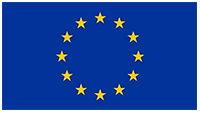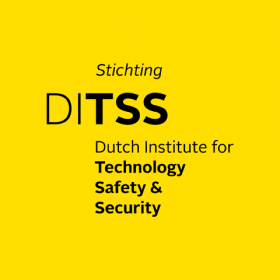
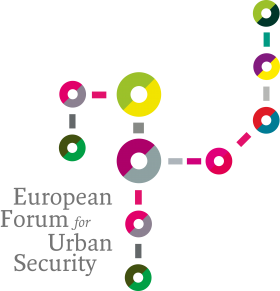
EFUS
European Forum for Urban Security
Founded in 1987 under the auspices of the Council of Europe, the European Forum for Urban Security (Efus) is the only European network of local and regional authorities dedicated to urban security. It includes nearly 250 local and regional authorities from 16 countries.
Objectives
Promote a balanced vision of urban security, combining prevention, sanctions and social cohesion,
Support local and regional authorities in the conception, implementation and evaluation of their local security policy,
Help local elected officials get recognition for their role in the development and implementation of national and European policies.
Activities & Services
Efus provides support and inspiration for locally elected officials and their teams who are convinced of the necessity of working together, transcending political differences, for the benefit of long-term security. In accordance with the principle of ‘cities helping cities’ Efus fosters the exchange of experience between authorities.
EFUS work on all major issues relating to urban safety and security.
Opportunity to network with more than 250 European local authorities and access to a pool of international partners and experts
Implementation and supervision of European cooperation projects and work groups
Support to local policies
Information and technical assistance regarding European subsidies
Training
Study visits and trips
Invitation to conferences and seminars
Access to all of Efus’s resources: publications, practice sheets and to Efus Network, the collaborative platform for the exchange of experience and information in the area of urban security, reserved for Efus’ members.

KEMEA
Center for Security Studies
KEMEA has been established as the Greek Ministry of Interior (former Public Order & Citizen Protection) think tank on security policies. KEMEA is a scientific, consulting and research agency, whose purpose is to conduct theoretical and applied research and to produce studies, particularly at a strategic level, on issues concerning security policies.
KEMEA also provides advisory and consulting services to the Ministry of Citizen Protection & Public Order and other Public and Private authorities on these same issues. KEMEA up to now is successfully participating in more than 60 Projects of the EC, ESA and of National Resources.
It has also represented the Greek Government to the European Research and Innovation Forum (ESRIF) of the European Commission and is a Member to the Board of Directors of the European Organization for Security (EOS). KEMEA has been appointed in 2011 (Presidential Decree No39/06.05.2011) as the “National Contact Point” for the protection of ECIs (“EPCIP contact point”) of Directive 2008/114/EC of the Council of December 8th 2008 “regarding the definition and designation of the European Critical infrastructures and the assessment of the need to improve the protection of such infrastructures”.

TNO
Nederlandse Organisatie voor toegepast-natuurwetenschappelijk Onderzoek
TNO (Nederlandse Organisatie voor toegepast-natuurwetenschappelijk Onderzoek TNO) is a Dutch independent contract research organization, one of the major ones in Europe. Based on its expertise and research in technology, policy, business and social innovation, TNO connects people and knowledge in order to create innovations which strengthen the competition position of companies and societal welfare.
With a staff of approximately 3000 and an annual turnover of 565 million Euros, TNO is carrying out research in order to achieve impact on five themes addressing the Societal Challenges: Industry; Healthy Living; Defence, Safety & Security; Urbanisation; Energy.TNO functions as an intermediary between basic research organisations and industry.
By translating scientific knowledge into practical applications, TNO contributes to the innovation capacity of businesses and government. TNO is involved in many international projects (about 30% of the market turnover), including EU-funded collaborations (Technology Platforms, Horizon 2020, KIC’s ).
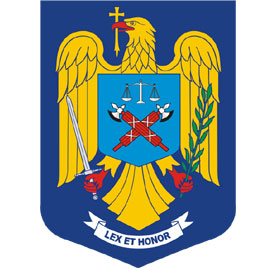
IGPR
Inspectoratul General al Politiei Romane
Inspectoratul General al Politiei Romane (IGPR) is the central unit of Romanian Police with general territorial competences. It leads, guides and controls all the subordinated police units, investigates serious crimes related to organized crime groups, economic and financial crimes, or other crimes which are part of penal cases supervised by the Prosecutor Office of the High Court of Cassation and Justice of Romania.
Romanian Police is part of the Ministry of Internal Affairs and is the specialized state institution, with responsibilities for protecting the fundamental rights and liberties of the persons, the private and public property, preventing and investigating crimes, ensuring respect for the public order, accordingly to the law.
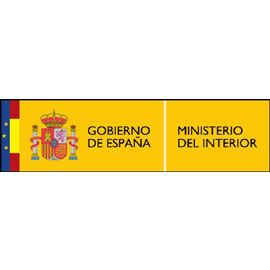
Ministerio del Interior
Spanish National Police
The Spanish National Police Force is a national Law Enforcement Agency born in 1824.
National Police has been growing up as police force from its origin to the present day. Currently, with more than 64.000 police officers, is a Law Enforcement Agency with competences in all Spanish territory which has been assigned with statutory tasks, among others “ to capture, receive and analyze the data of interest in order to ensure the public security, and study, plan and execute all the techniques and methods to prevent the crime”, but also: the protection of persons and goods, the public order and citizen security, the investigation of crimes, the collection and analysis of data to maintain the public security, the issue and control of national identity cards and passports, the enforcement of the legislation on foreigners, the international collaboration and exchange of information with other countries LEAs and the control over private security.
One of the National Police strategic lines, in home security, is to achieve a police force more dynamic, more efficient and more intelligent using new technologies and new working methods to be more effective.
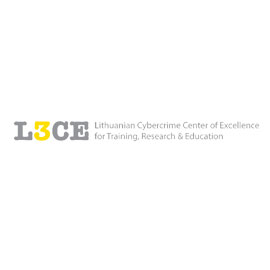
L3CE
Lithuanian Cybercrime Centre of Excellence for Training, Research and Education
L3CE was founded by two largest Lithuanian universities Mykolas.Romeris University (MRU) and Kaunas Technology University (KTU). L3CE is positioned as coordination, collaboration and knowledge sharing platform in the fight against cybercrime. Bundling the expertise forces of several academic research groups, public sector bodies and businesses in Lithuania and beyond the national borders, the L3CE coordinates interdisciplinary research on cybercrime topics, the development and teaching of basic and advanced cybercrime trainings for actors involved in the fight against cybercrime from different backgrounds and the implementation of cybercrime awareness initiatives.
L3CE is a coordinating member of SENTER Network – international network of Centers of Excellence (CoE) in the area of cybercrime research, training and education. The specialization of SENTER Network is formed using Special Interest Groups (IG) concept in three domains: Teaching & Learning in Cyber related topics, Computer Digital Forensic, and OSINT – Open Source & Web (Internet) Intelligence. L3CE is a coordinator of OSINT SIG activities and heavily involved in related R&D projects.
Core activities of L3CE are cyber related research, tools and competence development, focusing on law enforcement, security and defense agencies, as well other legal practitioners working with cyber specifics in judicial system.

JADS
Universiteit van Tilburg/ Jheronimus Academy of Data Science
The Jheronimus Academy of Data Science (JADS) is a unique concept in the Netherlands. At three different locations (TU Eindhoven, Tilburg University and Marienburg Campius) Data Science can be studied, researched and applied through bachelor and graduate programs, PDEng education, Data Science Centers and incorporated into existing ecosystems. This unique cooperation between the Province of North Brabant, the Municipality of ‘s-Hertogenbosch, Tilburg University and Eindhoven University of Technology creates a new knowledge infrastructure which puts Brabant at the heart of the future.
Mission
Understanding and advancing the value of data in solving complex societal and business challenges.
Vision
JADS serves as an ecosystem in the province North-Brabant, focusing on value creation for business and society based on data insights with a foundation in education and research.
It acts as a hybrid ecosystem enabler and linking pin connecting regional ecosystem players to applied research throughout JADS in addition to data science related start-ups in ‘s-Hertogenbosch.
Vision of the Graduate School Data Science and Entrepreneurship
The graduate school develops entrepreneurial and innovative data scientists equally versed in performing cutting-edge scientific research and applying it to the most pressing societal and business challenges in a collaborative ecosystem, stimulating a stream of new scalable (or exponential) business models in Brabant.

Eindhoven
Eindhoven is the fifth-largest city and a municipality of the Netherlands. It has a population of 230.000 in 2018, making it the largest city in the province of North Brabant.
Eindhoven is the centre of the Brainport-region, consisting of 21 municipalities, 760.000 people in total. Brainport has been the fastest growing economy in The Netherlands, for a decade now.
Brainport Eindhoven is one of the Hightech hotspots in the world. We host hightech-worldplayers, such as Philips, ASML, NXP, DAF, VDL. Not to forget over 6.000 high-tech Small and Medium sized Enterprises-supliers who invent solutions for societal challenges like mobility, energy, health. We are a city looking at the future, we love technology end experimenting.
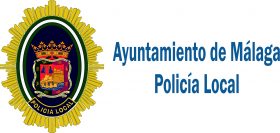
Ayuntamiento de Malaga
Policia Local
Malaga, capital of the province, is the fifth city of Spain in population. It is located in the south of the Iberian Peninsula, in a privileged enclave. Its municipality covers an area of 398.25 square kilometers and its population slashing 568,000 inhabitants, but the metropolitan area is about one million. Tourism is a very important socioeconomic powerhouse for Malaga, and therefore has important transport infrastructure such as: the 1st airport in Andalusia & the 3rd in Iberian peninsula, high-speed trains, commuter railway and metro system, and the 2nd Cruise ship port in peninsula & 6th in the Mediterranean Sea, with 651,517 passengers in 2014. The remodeling of the port and the increase in this type of tourism in the last years has meant the revitalization of historic urban centers, improving beach areas and an important investment in culture.
As a municipality it has competences and experiences related to all choices with a common objective based on a sustainable urban model stated in the Agenda 21 directed at improving the quality of life of its citizens. Experiences of its implementation are the Urban Initiative in the Historical Centre, the regeneration of the SOHO innovation model responds therefor to an integral urban innovation strategy in which every facet of urban and social environment converge, including urban planning, energy, mobility, participation, technologies and entrepreneurship.
As an urban lab, Malaga City Council promotes the experimentation of the latest innovation on urban issues linked to Smart City.

City of Larissa
The city of Larissa has a history of 8.000 years, with two ancient theaters within its urban structure, while it also has an important current cultural history and infrastructure – the famous first regional Municipality Theatre, The Municipal Art Gallery of Larissa – G.I. Katsigras Museum, with a significant art collection and art workshops for children, the Ethnographical Historical Museum of Larissa and the Archaeological & Byzantine Museum of Larissa, the Municipal Conservatory, the International Film Festival of Larissa / Artfools every spring, the Cultural Festival of Pinios in June, to name a few.
Larissa is a very youthful and live city, with many cafes, restaurants and taverns, situated by the most part in the pedestrian centre, along with a very active commercial centre and in walking distance from many of the city’s historic monuments.
In April 2015 the City Council of Larissa has decided for the candidacy of Larissa for “European Capital of Culture 2021” and regardless of the outcome, we are interested in taking advantage of the knowledge and experience gained in incorporating the cultural capital for promoting local development. We believe that a network of cities that have either been a European Capital or been/are a candidate can provide valuable insight and benefit from different experiences.
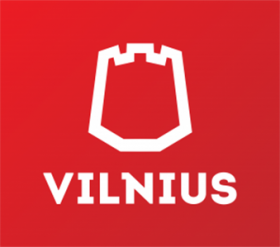
City of Vilnius
According to the studies of the World Economic Forum and the Institute for Economics and Peace Lithuania is one of the safest countries for tourists in the world, and „Lithuania is among the 20 most business-friendly countries in the world “(Mariano Andrade Gonzalez, COO at Barclays Group Operations Center in Lithuania). Easy to guess, that majority of tourist, as well as businessmen are staying in Vilnius – the capital and the largest city in the context of Lithuania.
Municipality of Vilnius implements different strategies to enhance activities in various areas in the city. Vilnius city council is the governing body of the municipality with 51 seats; there are 21 eldership in the whole territory of the city ( 401 sq. km) that are dealing with local issues and helping residents to solve their questions.
Some of the actions of the municipality government were pioneering the ideas in Lithuania or even the world. The innovative actions were such as letting people always see the mayor's office online over a webcam, giving people free bikes to ride with and otherwise promoting bike travel (which was not popular before), banning of any public alcohol consumption (previously not done in Lithuania), creating best internet connection, having possibilities to arrange air ballon flights in the very centre with open space, introducing a lot of inovative actions in the cultural sphere etc.
Municipality administration consists of departaments and divisions, that are responsible for various activities in Vilnius. Safe City Department will be directly involved in the “PROTECT” project activites.
From 2018 onward, we intend to work on a vision of Vilnius as open, safe and green city.
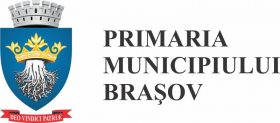
City of Brasov
The Municipality of Brasov is a local authority operating based on the principles of autonomy and decentralization and carrying out its activity in compliance with Law no. 215/2003 regarding the public administration.
Areas of activity:
Modern management of public utility services:
– e-government services
– urbanism
– land management
– infrastructure for local public transport
– public lighting
– environmental infrastructure
– communication
– cleaning and snow removal services
– safety in schools
– infrastructure dispatch services
Culture and Local Public Services subordinated:
– Local Police
– Public Community Service for People Evidence
– Health and social welfare
– Local taxes
